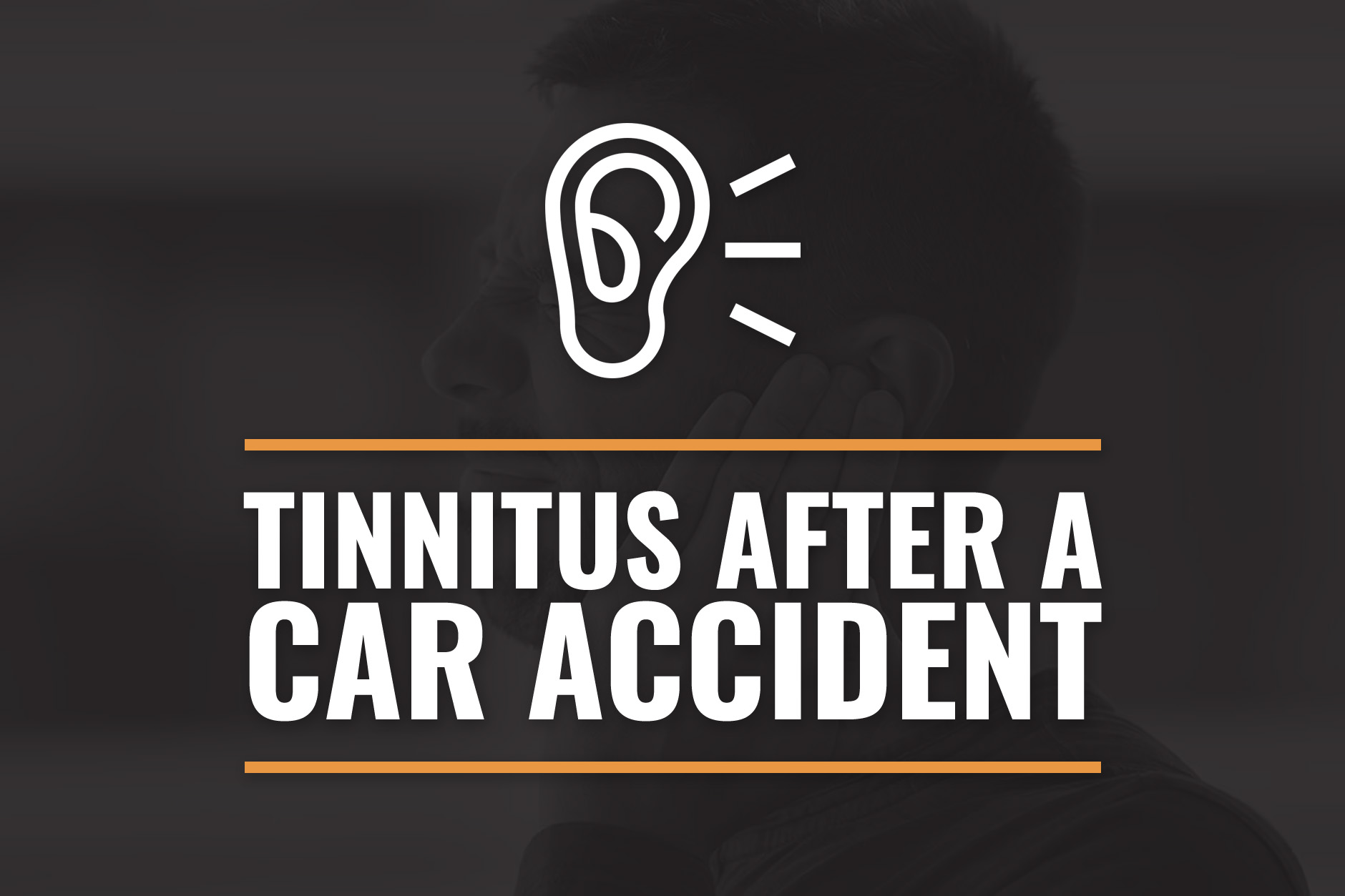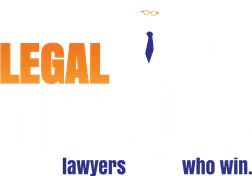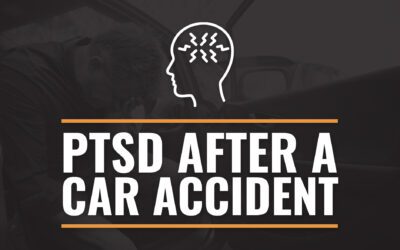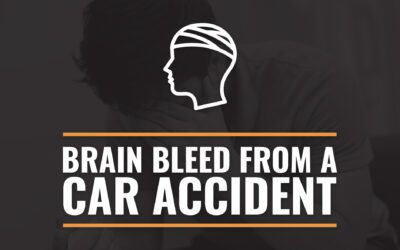
Table of Contents
When you’ve been injured in a car accident, you may suffer a range of symptoms that include confusion, headaches, sore muscles, and pain from broken bones or internal injuries. If you struck your head on impact, you may also experience a persistent ringing, buzzing, or hissing in the ears.
This condition, known as tinnitus, can be mild and intermittent or constant and overwhelming. No matter how it presents, it can be disorienting, especially when it appears suddenly after a traumatic event like a car accident. In this guide, we’ll go over how a car accident can trigger tinnitus and your options for compensation.
What Is Tinnitus?
Tinnitus is a condition where a person hears ringing, buzzing, hissing, or other sounds in one or both ears without an external source. It can be temporary or ongoing, with causes ranging from physical trauma and loud noise to ear infections, age-related hearing loss, and certain medications. Stress and high blood pressure can also make symptoms worse. While not a disease itself, it often signals an underlying issue with the auditory system.
What Causes Tinnitus After a Car Accident?
A strong impact to the head during a car accident can damage the auditory nerve or parts of the brain that process sound. This disruption may lead to ringing, buzzing, or other phantom noises. Even if there is no visible injury, a concussion can interfere with normal hearing functions, making tinnitus a common symptom after head trauma.
Whiplash and Neck Injuries
Whiplash occurs when the neck moves suddenly back and forth, straining muscles, nerves, and blood vessels. This movement can reduce blood flow to the inner ear or create pressure on the nerves that transmit sound signals. In some cases, whiplash affects the alignment of the spine, which may contribute to ongoing ear-related symptoms.
Inner Ear Damage from Airbag Deployment
Airbags deploy at high speeds, which creates a loud explosion-like sound inside the car. This sudden noise can damage the tiny hair cells in the inner ear that detect sound vibrations. Once these cells are harmed, they do not regenerate, which may lead to ringing or persistent ear sensitivity.
Noise Trauma from the Crash Itself
A car accident often involves screeching brakes, shattering glass, and metal collisions, all of which create extreme noise levels. Sudden exposure to loud sounds can overstimulate or damage the auditory system, leading to temporary or ongoing tinnitus. Those with pre-existing hearing issues may be more vulnerable to this type of damage.
Stress and Anxiety After the Accident
The emotional impact of a car accident can trigger stress-related responses in the body. Increased adrenaline and tension may heighten awareness of internal sounds, making ringing or buzzing more noticeable. Stress can also increase muscle tension around the head and neck, which may worsen symptoms.
Blood Flow Disruptions
Injuries from a car accident can affect circulation, especially if there is damage to the arteries near the neck or head. The inner ear relies on steady blood flow to function properly, and any interruption can cause hearing disturbances, including a pulsing or rhythmic ringing sound. Conditions like whiplash or vascular injuries may contribute to these changes, which require a medical evaluation to assess the extent of the issue.
Identifying the exact cause of tinnitus after an accident is key to finding the right treatment. A medical professional can help determine whether your symptoms will fade over time or require further care.
Signs That Tinnitus May Be Linked to Your Car Accident
If you’re trying to determine whether your tinnitus is linked to your car accident, certain signs can point to a connection.
The Ringing Started Immediately or Soon After the Accident
Tinnitus that appears right after a crash often suggests a direct injury to the auditory system. Damage from loud noise, head trauma, or whiplash can interfere with the way your brain processes sound, causing ringing, buzzing, or hissing sensations. If the symptoms began within hours or days of the accident, it’s likely related to the impact rather than an unrelated condition.
You Also Have Headaches, Dizziness, or Neck Pain
Tinnitus doesn’t always come alone. If you’re experiencing headaches, dizziness, or neck pain alongside the ringing, this could point to a concussion, whiplash, or nerve compression. Concussions can disrupt brain function, affecting hearing and balance. Whiplash can create tension or inflammation in the neck, which may interfere with nerve signals connected to hearing. When these symptoms occur together, they often indicate a crash-related injury rather than an unrelated hearing issue.
The Tinnitus Worsens When You Move Your Head or Neck
If turning your head, tilting your neck, or shifting positions makes the ringing louder, your tinnitus may be linked to muscle strain, nerve compression, or blood flow changes caused by whiplash or spinal misalignment. The cervical spine plays a key role in circulation and nerve function for the head and ears: misalignment from the crash can put pressure on nerves or arteries, leading to sound distortions like ringing or pulsating noises.
You Were Exposed to a Loud Crash, Airbag Deployment, or Direct Head Impact
High-impact sounds, like an airbag deploying or metal-on-metal collisions, can cause permanent damage to the delicate structures of the inner ear. Direct head trauma, such as hitting your head on the steering wheel, window, or dashboard, can also disrupt auditory pathways, leading to tinnitus. Even if you don’t remember hitting your head, the force of the crash alone may have been enough to cause internal damage.
If these signs sound familiar, your accident may be the reason behind your tinnitus. The good news is that there are ways to manage and treat it. Addressing the root cause can improve symptoms and help restore your quality of life.
Treatment Options for Tinnitus
Tinnitus doesn’t have a standard cure, but treatment can reduce the noise and make life easier. Below is an overview of what you should do if you suspect your accident caused the issue.
- See a Doctor or Audiologist: Your first step is to get checked out. A doctor can examine your ears, test your hearing, and determine if your tinnitus is linked to an injury. If needed, they may refer you to an audiologist (a hearing specialist) or an ENT doctor (ear, nose, and throat specialist).
- Treat the Underlying Cause: If your tinnitus is due to whiplash, a concussion, or inner ear damage, treating the root issue can help. This might involve physical therapy for neck injuries, medication for inflammation or nerve pain, and hearing aids if there’s hearing loss involved
- Sound Therapy and White Noise Machines: Tinnitus often seems louder in quiet settings. A white noise machine, fan, or soft music can help mask the ringing, making it less noticeable. There are even apps designed to create soothing background noise.
- Tinnitus Retraining Therapy (TRT): TRT combines counseling and sound therapy to help your brain “tune out” the ringing. Over time, this training can make the noise less distracting.
- Stress Management and Relaxation Techniques: Since stress can make tinnitus worse, relaxation techniques like deep breathing, meditation, or yoga can help. Keeping your stress in check may lower the intensity of the ringing.
Can You File a Claim for Tinnitus After a Car Accident?
If your tinnitus resulted from the crash, you may be eligible for compensation that covers the following:
- Medical Expenses: Tinnitus often requires multiple doctor visits, hearing tests, and specialized treatments. Compensation can help cover the costs of audiologist evaluations, imaging scans, prescription medications, and therapy designed to manage symptoms. In severe cases, ongoing treatment such as sound therapy or hearing aids may be necessary, which adds to long-term expenses.
- Lost Wages and Reduced Earning Capacity: If tinnitus affects your ability to concentrate, communicate, or perform your job, you may miss work or struggle to keep up with daily tasks. Compensation can account for lost wages during recovery and, in some cases, future income loss if your condition leads to long-term work limitations.
- Pain and Suffering: Many people struggle with irritability, depression, and difficulty focusing, all of which can take a toll on daily life. Compensation can reflect the mental and emotional impact of living with constant ringing or buzzing, especially if it affects relationships, hobbies, or overall well-being.
Since tinnitus is difficult to measure, insurance companies may try to downplay its severity. To build a solid case, gather strong evidence that connects your condition to the accident. This may include:
- Medical Records: Documentation from doctors, audiologists, or specialists confirming your tinnitus diagnosis is key. Hearing tests, MRI or CT scans, and treatment plans can help prove the extent of your condition.
- Accident Reports: A police report or official accident documentation establishes that the crash occurred. Details about the collision, such as airbag deployment, head trauma, or impact severity, can help support your case.
- Witness Statements: If passengers, bystanders, or first responders saw or heard the accident, their statements can reinforce your claim. Testimonies describing the crash’s intensity, loudness, or physical impact may help connect your tinnitus to the incident.
- Expert Testimony: Doctors, audiologists, or medical specialists can provide professional opinions linking your condition to the crash. Their expertise can help counter insurance company arguments that your tinnitus is unrelated or pre-existing.
How Can a Car Accident Lawyer Help?
Tinnitus is real and can be life-altering, but insurance companies don’t always treat it that way. Since there’s no single test that objectively measures its severity, insurers may try to downplay your symptoms, argue that they’re unrelated to the accident, or offer a low settlement. A skilled personal injury attorney can fight these tactics by gathering strong evidence, proving the impact on your life, and negotiating for the compensation you deserve.
Your attorney will make sure you see the right specialists, such as audiologists or neurologists, who can properly diagnose your tinnitus and link it to your accident. They may recommend hearing tests like an audiogram or tinnitus assessment, which can help support your claim. They will also collect medical records, accident reports, and witness statements to establish that your tinnitus was directly caused by the crash.
Tinnitus treatment can involve ongoing doctor visits, therapy, and medication. If your condition affects your ability to work or reduces your earning potential, those losses should be included in your claim. A lawyer will ensure that both current and future costs are accounted for, preventing you from settling for less than you need.
Get a Free Consultation From a Michigan Car Accident Lawyer
Tinnitus after a car accident can be both disorienting and distressing, but there are treatments that can make a difference. An experienced personal injury lawyer can help you pursue the financial compensation you need to treat the cause and minimize the impact of the symptoms on your life.
At LegalGenius, we are here to protect your rights and hold all negligent parties accountable for your losses. No one should have to deal with constant ringing in their ears, especially after an accident that wasn’t their fault. The sooner you take action, the better your chances of relief and recovery. If you have questions about tinnitus and car accident claims, reach out to a car accident lawyer who will prioritize your well-being and fight for the settlement or verdict you need. Your health and peace of mind are worth it. To learn more, fill out our Ask the Genius™ form or call 1-800-209-4000 today.

Attorney Jeffrey Perlman
Attorney Jeffrey Perlamn is the managing partner at LegalGenius, PLLC. He has helped Metro Detroit accident victims recover the compensation they deserve for over 35 years. He believes everyone should have access to justice and the legal system, which is why Attorney Perlman spends his time outside of the courtroom writing informational blogs on the LegalGenius website that are accessible to all.


